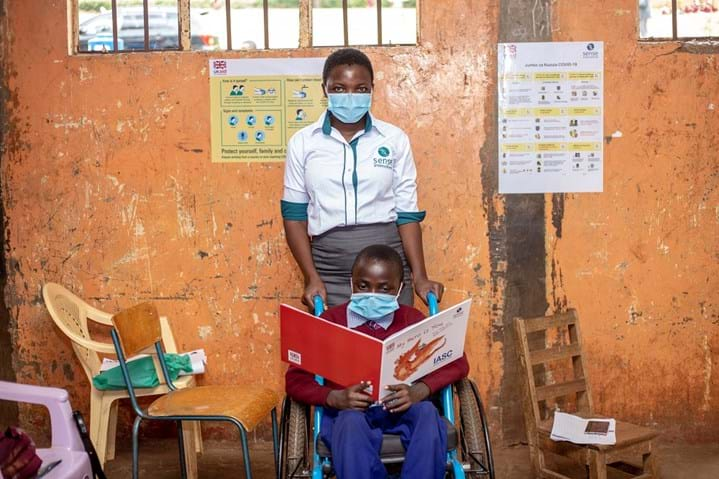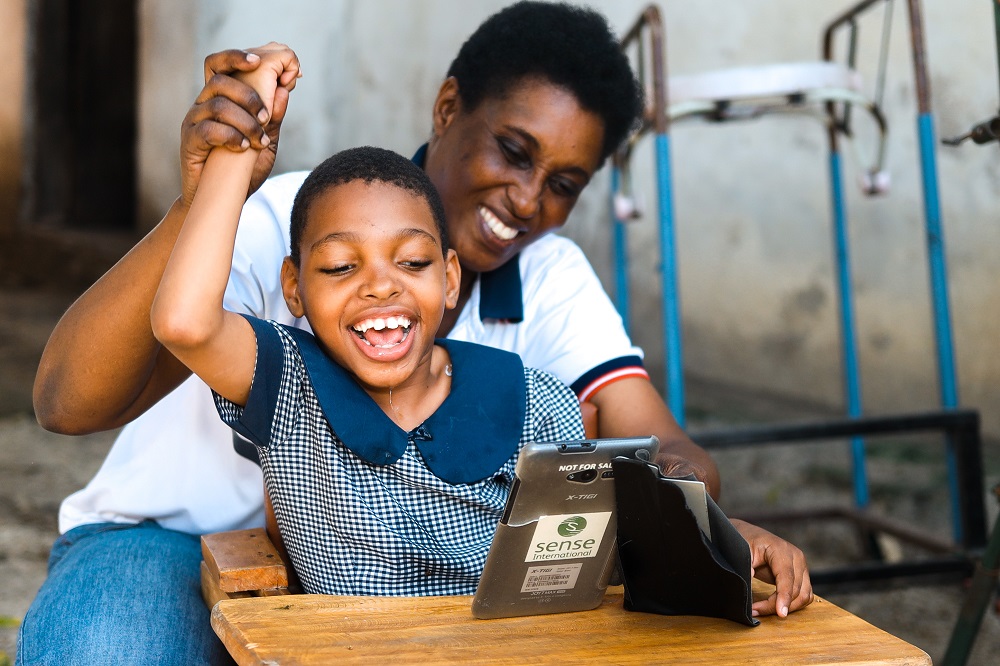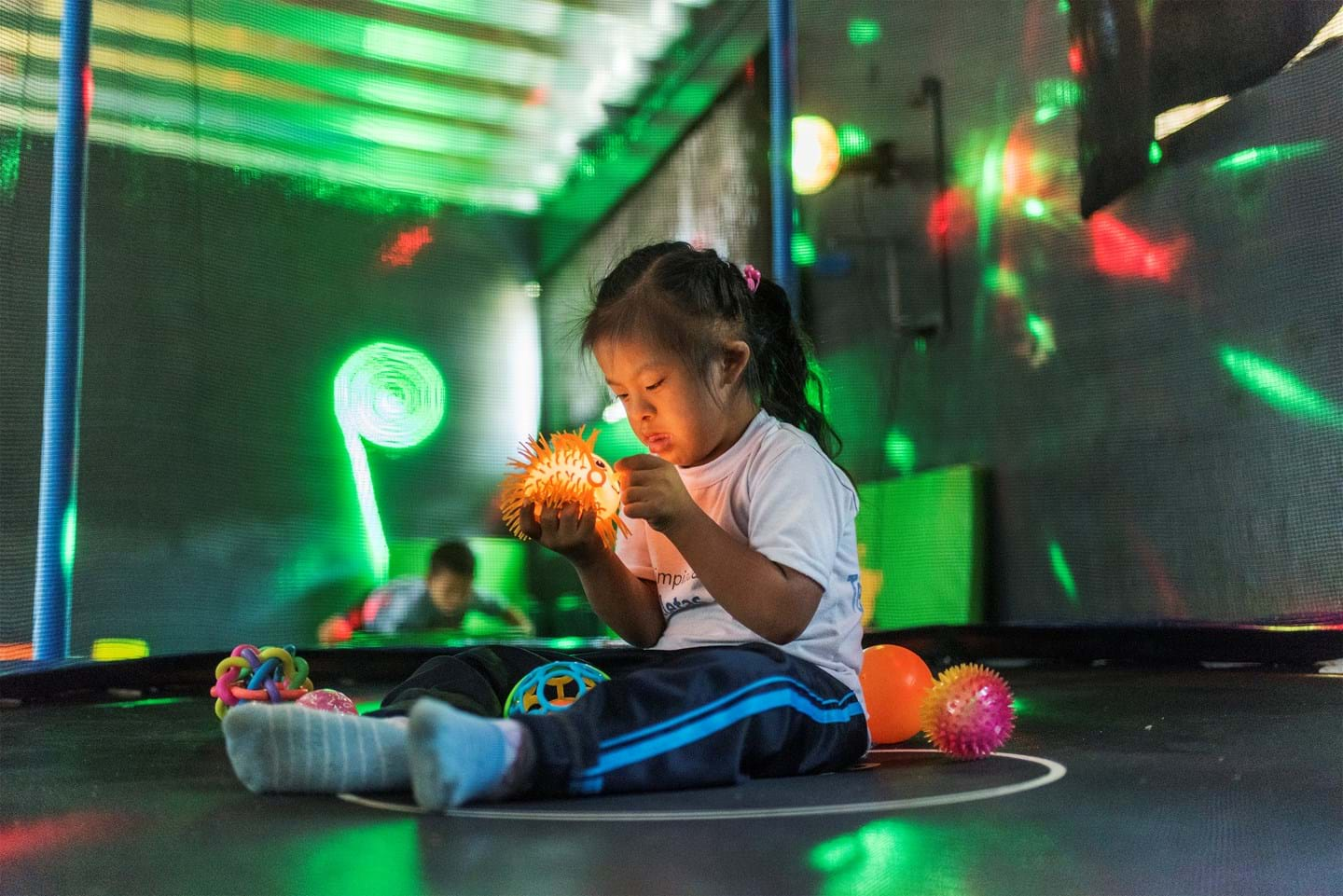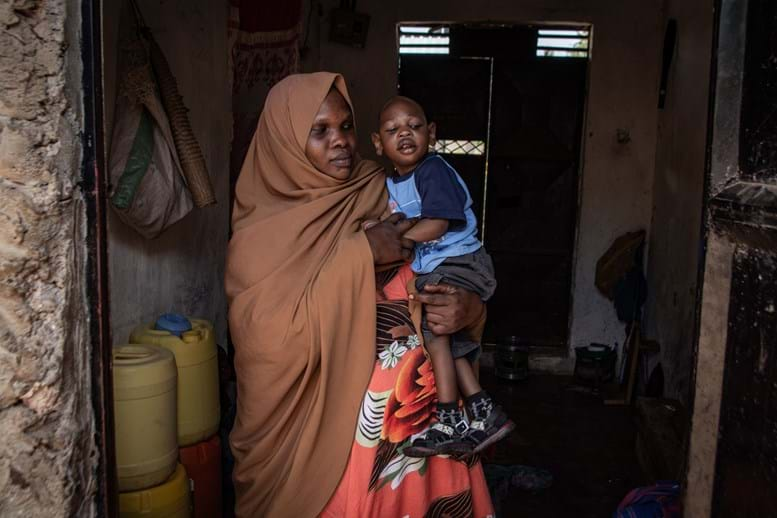Covid-19 response

The COVID-19 pandemic is severely impacting the children and families that Sense International supports worldwide.
Since the beginning of the COVID-19 pandemic, we have adapted our work so as to provide vital supplies, information and mental health support to children and young people with deafblindness and their families.
Focusing on health and safety
In these unprecedented times, our focus has been on the health, safety and wellbeing of all those in contact with our programmes.
We know that during crises, those who are most marginalised within society are often worst affected. We also know that people with disabilities are frequently left behind due to a failure to consider their needs in policy and practice.
Working in line with local regulations, our priority has been to stay in contact with the individuals and families that we support and find appropriate responses to their needs and requirements at this time.
Information about COVID-19
We have provided information in accessible formats.
Information about COVID-19 and how to stay safe has not always been made available in formats that are accessible to all. We have ensured that key messages have reached people with deafblindness and their families.
In Bangladesh, telephone and video calls to people with deafblindness and their families have helped to raise awareness of COVID-19 and the importance of following good hygiene and social distancing measures.
In Kenya, we have loaded videos with important health and hygiene messages onto tablets and made these available for families to view.
In Romania, we have ensured that schools are supplied with face masks that have a transparent panel over the mouth area to make it possible for students who use lip reading to communicate.
Providing essential rations and financial support
We have ensured that children and their families have vital supplies.
Local and national lockdowns have caused many families to lose income and struggle to obtain basic food and hygiene items, as well as medicines.
We have provided emergency rations or financial support to families in India, Bangladesh, Nepal, Uganda, Kenya and Peru to ensure that they have enough nutritious food to eat and that children with deafblindness have access to the medicines that they need.
Staying safe
We have supported young people with deafblindness and other complex disabilities to stay safe.
Our focus has been on ensuring the safety of the people we support, as well as their families and communities.
In Kenya, we installed hand washing facilities at 22 schools and trained 831 teachers on handwashing techniques.
In Bangladesh, we have ensured that young people with deafblindness understand hygiene messages and guidance on social distancing and follow these in practice.
In Romania, we started a project to help children and young people with sensory impairments to stay safe online.
Continuing our core work
We have found ways to ensure that our core work continues.
Despite challenging circumstances, we have adapted our working practices.
In Peru, we have been able to deliver training to teachers online so as to continue ensuring that children with deafblindness receive a quality education.
In India, information and training has been delivered to parents of children with deafblindness as well as educators and health professionals via webinars.
In Bangladesh, we have resumed home visits to provide educational support to children with deafblindness where possible, observing social distancing and other protective measures.
In Romania, we have supported young people with deafblindness remotely to create an advocacy campaign about rights issues using videos they have made at home.




